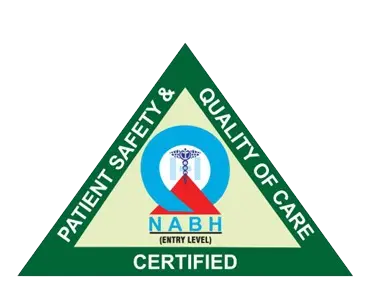It is a daunting experience when one’s loved one gets admitted to a critical care unit (CCU). With it come some bottleneck thoughts as one wonders how much such a person is required to be placed in a critical care unit: What’s a critical care unit? What is being done there? What would be the expectation during times spent by a loved one under critical care?
CritiCare Hospital understands that this experience can be extremely intimidating. Therefore, one of our primary aims remains to furnish patients and families with the highest standards of clarity, care, and comfort. Through this blog post, we will take you around what critical care is, how it works, and what to expect at the time your loved one gets admitted into CritiCare Hospital’s critical care unit.
What is a Critical Care Unit?
A critical care first hospital unit: critical care units (CCUs) are also called intensive care units (ICUs). They would provide a specialized area inside a hospital to implement a very high level of treatment and monitoring of patients with serious illnesses or injuries that not only cause a lot of pain but also endanger an individual’s life. They are designed with the most advanced medical technology and staffed by the most skilled medical professionals, including doctors, nurses, respiratory therapists, and other specialists.
Thus, conditions such as cardiac arrest or other treatments are possible. They may also include specialized treatments for other conditions like:
- Stroke
- Severe infections
- Traumatic injuries
- Respiratory failures
- Intensive post-surgical recovery following complicated surgeries
Continuously monitored and given constant medical attention, a CCU patient is distinguished from other patients admitted in a regular hospital. There are a large number of health professionals in the critical care unit as compared to the normal wards of hospitals. It is to ensure that all medical needs are cared for immediately and properly.
Types of Critical Care Units
CritiCare Hospital has a gynecology unit, an important part of health care concerning pregnancy and delivery. Also under critical care services are the following:
- Intensive Care Unit (ICU): The intensive care unit needs the patient’s presence and mighty support. These are for patients suffering from life-threatening conditions. In this unit, machines will be utilized to monitor heart rate, blood pressure, and other vital signs.
- CCU or Coronary Care Unit: This unit is specific for the heart; care is portrayed to patients suffering from symptoms like heart attacks, severe chest pain or arrhythmia, and post-surgery heart recovery.
- NICU: It is primarily an intensive care unit in which mostly critically ill newborns, premature babies, or severely ill-on-birth babies are taken for critical care.
- PICU: Pediatric Intensive Care Units are those that will primarily specialize in rendering specialized care to extremely sick children, from infants to adolescents.
- SICU: It is after major surgeries such as those undergoing organ transplantation, complicated surgeries, and trauma-related operations. Such post-surgical patients are observed and treated in the surgical intensive care unit (SICU).
Activities Conducted in the Critical Care Unit?
Before admission to the Critical Care Unit, the patient assessment and the formulation of individualized management were necessary. The health personnel will subsequently monitor closely and observe any changes in vital signs such as heart rate, blood pressure, oxygen levels, and function of respiration. Depending on these parameters, treatments may include:
- Ventilation Support: Most patients needing breathing support connect their ventilators.
- Cardiac Monitoring: Cardiac Monitor for your heart problems—traced with sophisticated machines keeping a watch on heart rhythm, blood pressure, and even other necessary cardiovascular parameters.
- IV Medications: Patients will often get life-sustaining medications through IV lines, such as antibiotics, analgesic fluids, or the like.
- Dialysis: cleaning of blood with the help of a dialysis machine due to the poor functioning of the kidneys.
- Sedation and pain relief: The patient remains in critical care, and most often, the patient is in pain or discomfort; hence, sedation and analgesics are given to improve the comfort of the patient.
- Wound care and surgical intervention: If the patient requires surgery, has open wounds, or requires post-surgical care, a health expert would manage their needs through appropriate interventions.
Unlike other hospitals, CritiCare uses the latest tools and state-of-the-art treatment protocols to give the best care possible for all patients suffering critical conditions.
What Is to Be Expected by Your Loved One’s Stay in Critical Care?
Visiting a loved one in critical care may be one of the most emotional experiences in a person’s life, as those entering there realize how true it is that life is a matter of life or death. One should bear this in mind: the CCU medical personnel are professionals on site at CritiCare Hospital working their hardest to provide the very best care. Here is what you can expect:
Continuous monitoring.
Your loved one will be continuously monitored from the time of admission into critical care. Continuous monitoring is performed on such parameters as heart rate, blood pressure, oxygen levels, breathing pattern, and much more. Modern equipment such as heart monitors, pulse oximeters, and ventilators will be used by the medical staff to closely monitor the condition of the patient.
Restricted visiting hours.
Since the CCU is a highly controlled environment, visiting access is also limited. CritiCare Hospital sets times for visitation to allow for proper medical treatment and rest for patients. Some individuals will also require protective clothing, such as gowns or gloves for their visitors to prevent infection.
Although hours may be restricted for visiting, we recognize the importance of family in such difficult circumstances. Our employees will endeavor to make every effort to meet a desire for spending time with a loved one while creating an environment that is sterile and safe.
Good Networking with the Medical Team
Close Communication with Medical Team: One of the most important aspects in critical care is communication and contact between medical and nursing personnel and consulting with families. Updates regarding the patient’s progress should be provided from time to time by a physician and nursing staff.
The family is cared for at CritiCare Hospital, which ensures dissemination of information on treatment plans, condition changes, and next steps of care. They are encouraged to have healthy conversations with the health professionals taking care of their loved ones regarding issues or questions that may arise. We are committed to making you feel well supported as well as informed at this trying time.
Emotional Support
The critical care experience can be emotionally traumatic. There is hopelessness, anxiety, or fear in the family. To help you through it, CritiCare Hospital understands the emotional burden and provides the following support:
Counseling Services: We provide psychological counseling to the families of patients who undergo the added stress of having their loved ones critically ill.
Spiritual Care: For those who seek spiritual support, we provide access to chaplains and other spiritual services to comfort families during difficult times.
Possible Use of Life Support Systems
They may need ventilators, dialysis machines, or pacemakers, in which case the mere bodily functions such as respiration and kidney function are carried out partly or wholly by the machines that patients can no longer manage on their own. Such equipment is an integral and indispensable part of the patient’s care in the Critical Care Unit, definitely life-saving treatment.
However, it must be understood that keeping a patient stable while attempting to condition him into the possibility that he might not be dependent on such systems for survival should further lead toward recovery.
Transition to Recovery or Other Care Units
Once the condition of your loved one is stabilizing, the next and most desired step would be the transfer to a less intensive care unit or return to a general hospital ward for further recovery. This step may take the form of a transition from the ICU to a regular ward or, in some cases, to specialized rehabilitation units if such patients have to undergo further therapy. The family is taken care of at CritiCare Hospital, allowing information interchanges regarding treatment plans, status changes, and subsequent steps of care.
The team at CritiCare Hospital will work with you along this journey to ensure that your loved one receives adequate treatment.
How can families support their loved ones in the critical care unit?
While the medical staff deals with all clinical matters, family and friends provide emotional and practical support through this difficult moment.
- Be Present: Your presence would be among the strongest comforts to your loved one. Even if that does not allow for talking, handholding, a gentle touch, even just being there, might give such comfort.
- Take Note: Ask questions and stay informed about the patient’s condition. The more you know, the less anxiety and uncertainty there will be.
- Respect the rules and policies set by the hospital: The visitation hours, infection control protocols, safety protocols, etc., of the hospital should be maintained. This will help maintain the safety of the patients and the visitors.
- Handle Yourself: One thing that often happens is forgetting one’s well-being in taking care of the loved one. Make sure you are getting good rest, eating properly, and taking breaks because they are essential for you to care for your loved one.
Conclusion
Being admitted as a patient in Criticare Hospital, a critical care unit, makes milestone marks for the patient and his family. As the Best Private hospital in Lucknow Criticare has committed to ensure state-of-the-art medical care but also to provide emotional support to the families in their time of need. Presently, although overwhelming, it is important to remember that you and your loved one are in good hands, and compassionate care is accorded at the highest level.
If any questions arise in your mind regarding your loved one while in the intensive care clinic, please do contact us. We will extend our help in getting you through all the necessary steps.




